
The “Hope and Unity” Charitable Foundation continues to actively support the Ohmatdyt Children’s Hospital. Thanks to caring Ukrainians and the support of the Foundation’s partners, we have managed to raise significant funds for the purchase of necessary equipment, medicines and materials.
This week, a modern lung ventilator was delivered to the hospital, which will help save the lives of the youngest patients. In addition, the foundation provided the oncology department with new beds and medical instruments. A recreation room with games and educational materials was organized for children undergoing long-term treatment.
“We understand how important the atmosphere in which children are treated is for them,” says PIB, founder of the ‘Hope and Unity’ Foundation. – “That is why we strive to create the most comfortable conditions for young patients and their parents at Okhmatdyt.
The “Hope and Unity” Foundation calls on all those who care to join the charitable cause and support the Okhmatdyt Children’s Hospital. Every hryvnia, every little thing matters and can save a child’s life.
How to help:
Together we can create a future for every child!
CHARITY, CHILDREN, DISEASE, foundation, HELP, Hope and Unity, SUPPORT, ОХМАТДИТ
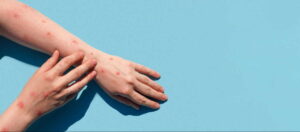
There are no registered cases of monkeypox in Ukraine, according to Deputy Health Minister and Chief Sanitary Doctor of Ukraine Ihor Kuzin.
“No such cases have been registered in Ukraine. In fact, they are estimated to be quite low, given the lack of transport and air traffic,” he said during a telethon on Wednesday.
Kuzin clarified that there was an appropriate response to monkeypox and relevant WHO recommendations even before Russia’s full-scale invasion of Ukraine.
“The emergency situation declared by the WHO at this time is related to the fact that a new subtype of the monkeypox virus has begun to circulate. This new subtype is now being detected in the vast majority of cases among those population groups that were not previously at risk,” he said.
The Deputy Minister noted that during the first wave of monkeypox, Ukraine received vaccines against the disease thanks to the EU.
Earlier, the Experts Club information and analytical center released a video with a detailed explanation of the origin of the disease and the prospects for its spread – https://youtu.be/YXYU6KcQTcQ?si=wEj2TQc3MPHGx0QY
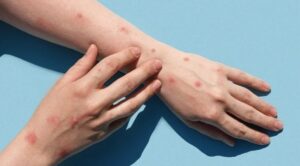
The EU Health Safety Committee has concluded that there are no grounds to consider the situation in the European Union in connection with the cases of monkeypox an emergency, European Commission (EC) spokesperson Stefan de Kersmaeker said.
“Our approach is based on scientific evidence, and it served as the basis for our discussions at the committee meeting the day before. The European Commission and EU Member States met to discuss the situation and consider how to coordinate the next steps. The Health Safety Committee agreed that there is currently no emergency situation in Europe concerning monkeypox,” the spokesman said at a briefing in Brussels on Tuesday.
He referred to an analysis published on August 16 by the European Center for Disease Prevention and Control, according to which “the overall risk to the population remains low at present.”
The EC representative also said that the committee members agreed on the need for a coordinated approach to this problem and close monitoring of the situation.
Answering a question about the availability of monkeypox vaccines in the EU, de Kersmaeker noted that the COVID-19 pandemic has shown the importance of preparedness for health crises. He said that since 2022, several contracts have been signed with different companies, and these vaccines have already been distributed to Member States.
“Our latest joint framework contract provides for the purchase of up to 2 million doses of vaccines,” the EC representative added.
Monkeypox is a rare viral disease. The infection is accompanied by fever, intoxication, swollen lymph nodes and further spread of the rash – first in the form of spots that transform into bubbles, after opening them, ulcers form, after they heal, crusts form, and when they fall off, scars form. In mild cases, the disease usually resolves on its own and lasts from 14 to 21 days.
Last week, the WHO declared a public health emergency of international concern due to the outbreak of monkeypox in Congo and other African countries. This year, more than 14 thousand cases of the disease have been detected in Congo, with 524 deaths recorded.
Earlier, the Experts Club information and analytical center released a video with a detailed explanation of the origin of the disease and the prospects for its spread – https://youtu.be/YXYU6KcQTcQ?si=wEj2TQc3MPHGx0QY
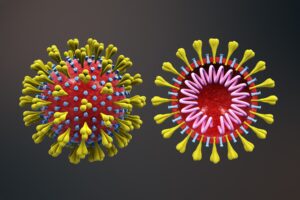
The Center for Public Health under the Ministry of Health of Ukraine warns Ukrainians about another type of coronavirus disease MERS-COV, which is spreading in the countries of the Middle East.
“Ukrainians who plan to travel to the Middle East should take into account the circulation of Respiratory Syndrome (MERS-CoV) in the Middle East region. The virus was first diagnosed in Saudi Arabia back in 2012. However, new human cases of MERS-CoV are still being reported, including lethal ones,” the message says.
As noted, Middle East respiratory syndrome (MERS-CoV) is an acute respiratory viral infection caused by the MERS-CoV coronavirus, which is pathogenic for humans.
In particular, the course of the disease may be asymptomatic, and may be accompanied by severe clinical manifestations such as high body temperature, cough and shortness of breath. Often, patients are diagnosed with pneumonia.
According to the World Health Organization (WHO), the infectious agent is limited to the Arabian Peninsula. In particular, most cases were reported in Saudi Arabia, Oman, Qatar, Iran, Jordan, Kuwait, Yemen, and the United Arab Emirates. Outside the region, isolated imported cases of the disease were recorded. However, travelers are advised to be vigilant and take into account the likelihood of infection in the listed countries.
“During the period from January 1 to March 11, 2021, Saudi Arabia reported to WHO about seven new cases of MERS-CoV infection, including three deaths. The patients’ age is from 48 to 84 years. Three of them had contact with camels. All infected had concomitant diseases: diabetes mellitus, hypertension or chronic kidney disease. This fact underlines the previously existing evidence that people with just such diseases, as well as lung diseases and weak immunity, become the main target for MERS-CoV,” the Center said.
It is also noted that MERS-CoV infection occurs through direct or indirect contact with camels. The virus is transmitted from person to person within the family.
Travelers are warned before visiting the Middle East to avoid close contact with animals, especially camels, consuming raw camel milk or eating meat that has not been properly processed, to refrain from visiting crowded places, to follow general rules of hygiene such as regular washing hands before and after touching animals and avoiding contact with sick animals, and follow food hygiene practices.
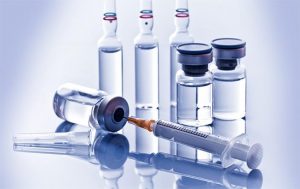
The Verkhovna Rada’s National Health Committee has recommended that parliament support a bill that makes it possible to shorten the approval period for clinical trials and registration of vaccines and drugs against coronavirus disease (COVID-19).
“The profile committee recommended the Verkhovna Rada to support bill No. 4314. It makes it possible to shorten the approval period for clinical trials and registration of vaccines and drugs against COVID-19,” the Servant of the People party said on Facebook on Wednesday, December 2.
According to the head of the Verkhovna Rada of Ukraine Committee on Public Health, Medical Assistance and Medical Insurance Mykhailo Radutsky, the adoption of bill No. 4314 will reduce the burden on the healthcare system.
“Vaccination of a large number of patients will reduce the burden on the health care system of Ukraine,” Radutsky said.
“And thanks to the bill, this will become possible. After all, the involvement of Ukraine in clinical trials of vaccines would allow to vaccinate part of the population already now. Likewise, reducing the time for state registration of vaccines will speed up their full-scale use,” the Servant of the People said.
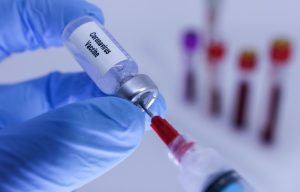
The Cabinet of Ministers of Ukraine exempted imported vaccines from coronavirus disease from VAT.
The corresponding government decree, adopted at a meeting on Wednesday, includes a number of antibiotics and vaccines for the prevention of coronavirus disease (COVID-19) in the lists of drugs that are exempt from VAT, approved by Resolutions No. 224 and No. 225.
As Prime Minister Denys Shmyhal said at a government meeting, this decision will reduce the cost of imported vaccines for the prevention of COVID-19.